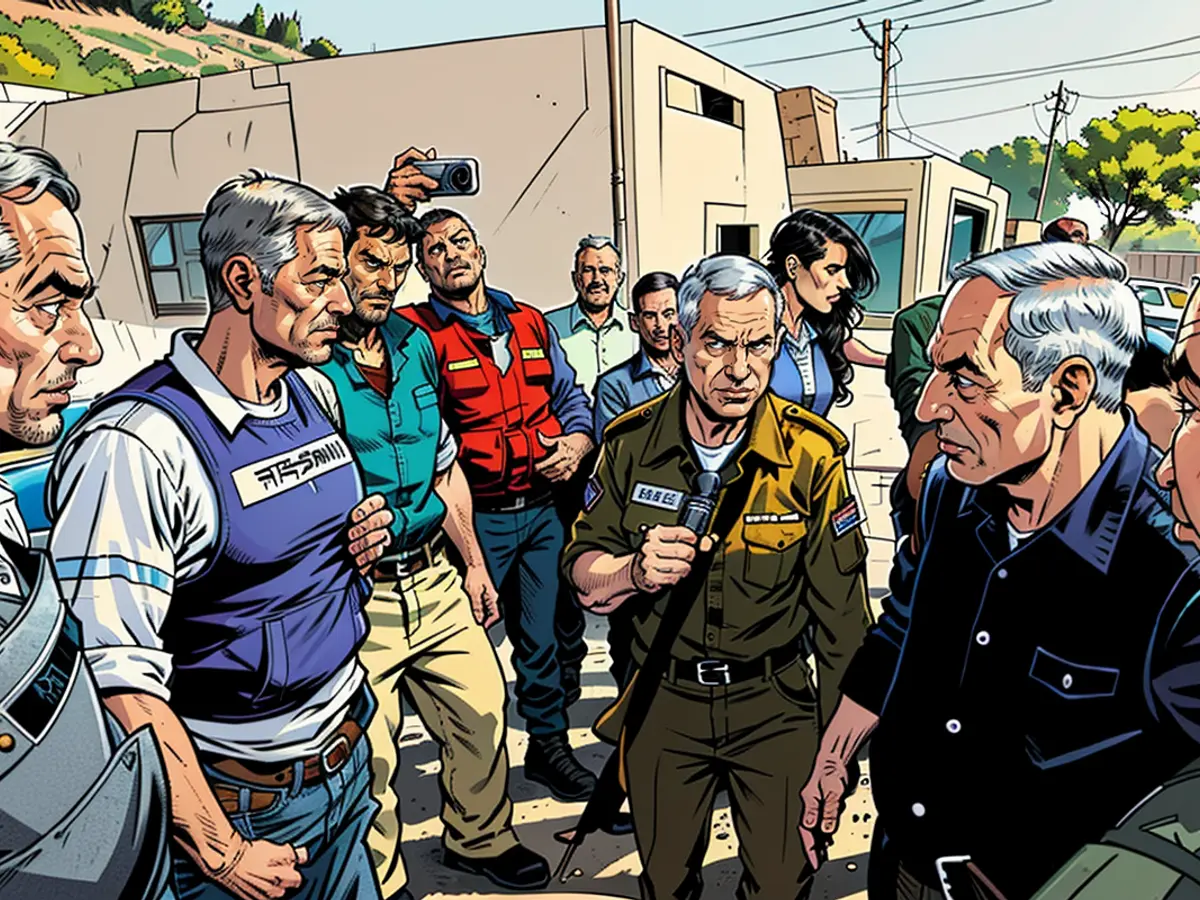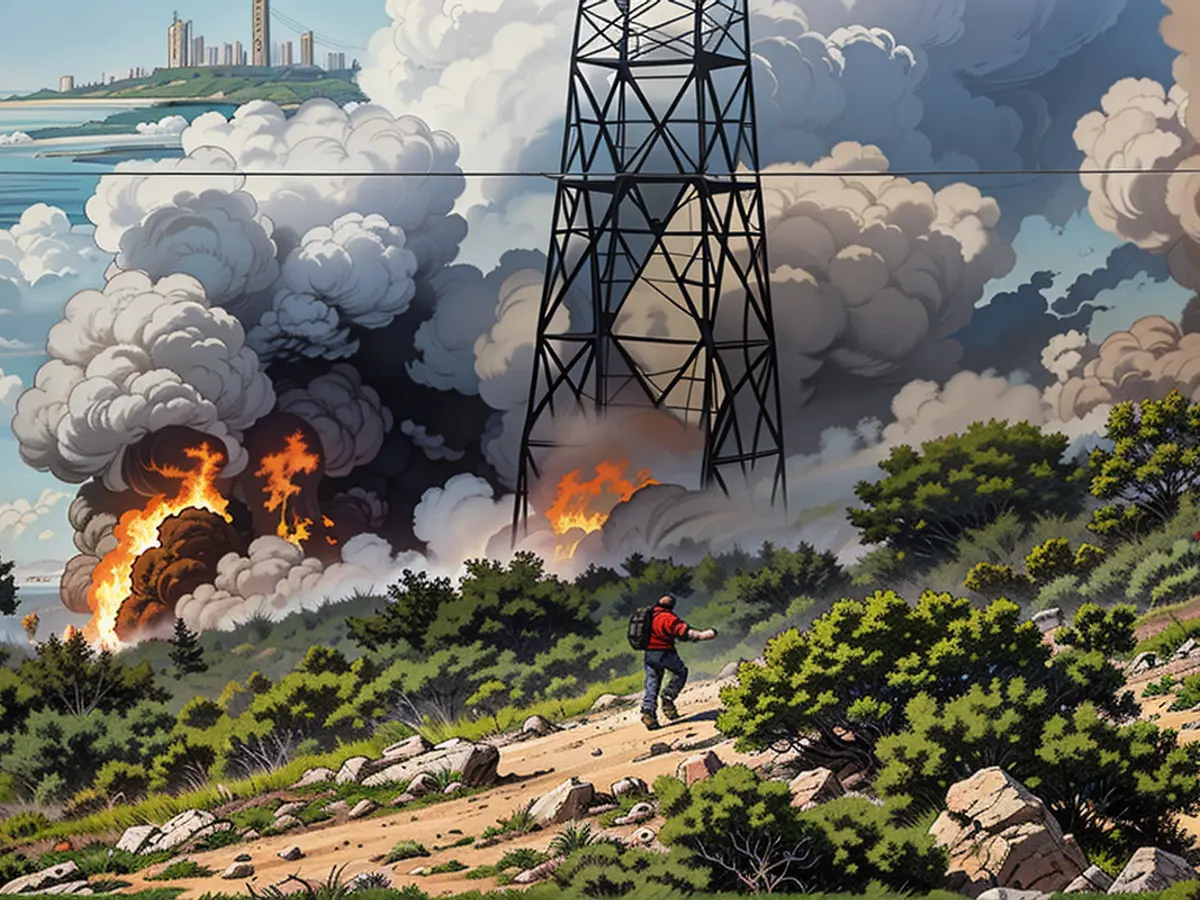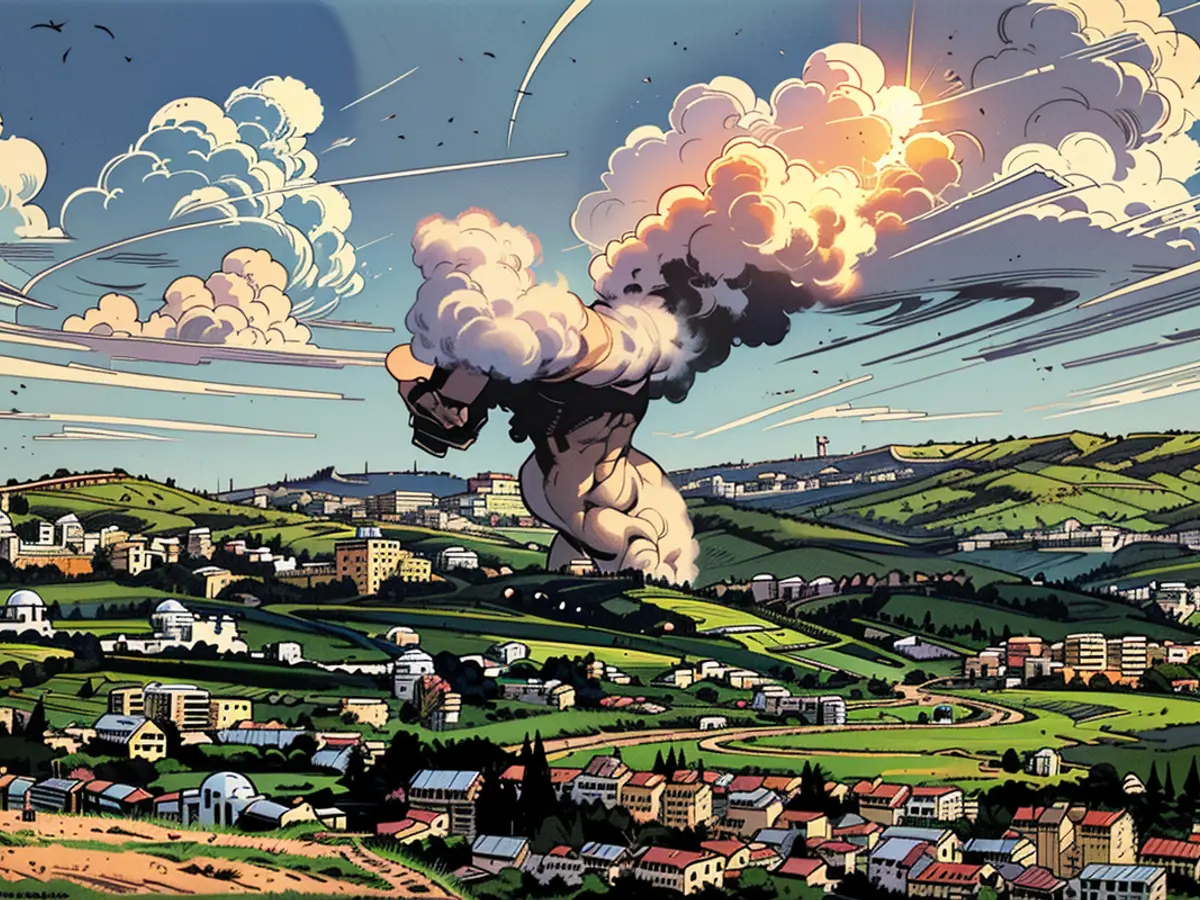Israel-Lebanon border tensions escalate with IDF hinting at a potential new military operation.
This past week, flare-ups from Lebanon resulted in a series of fires in Israel's northern regions. These fires consumed vast areas of land and led to evacuations. Israeli officials claimed the blazes were a consequence of rocket strikes originating from southern Lebanon, where Hezbollah declared they had launched a "swarm of drones" toward Israeli military installations.
On Wednesday, Israeli Prime Minister Benjamin Netanyahu toured the northern city of Kiryat Shmona, which is near the Lebanese border. Netanyahu warned of "intense action" required in the north and expressed confidence in Israel's ability to restore tranquility to the region.
"Whoever thinks they can harm us and sit back quietly made a serious mistake," Netanyahu asserted. "We will, in one way or another, restore security to the north."
These remarks came soon after Israeli Defense Forces (IDF) Chief of Staff Herzi Halevi stated the military was preparing to launch assaults on targets in the northern landscape.
"We're all set after an extremely proficient training process - similar to that of a military exercise - to transition to an offensive in the north. As we speak, three lines of defense and a readiness to attack have already been established," Halevi noted on Tuesday.
Since the beginning of Israel's war with Hamas in Gaza in October, Israel and Hezbollah have exchanged fire. Last month, the IDF announced its intention to shift from defense to attack in response to conflict on the northern border. Hezbollah has justified its attacks against Israel as protests against Israel's Gaza war.
Hezbollah's deputy leader, Naim Qassem, provided an interview with Al Jazeera on Tuesday, maintaining that his organization was a front supporting Gaza and that this front would persist until the Gaza conflict concluded. Despite his claims, he also added that Hezbollah wouldn't trigger a full-scale war and vowed not to withdraw.
"No matter what, we decided not to expand the battle. But if it is forced upon us, we are ready, and we won't step back," he insisted.
The IDF reports approximately 300 Hezbollah fighters killed and around 80 civilian casualties in Lebanon as a result of Israeli fire. Ten Israeli civilians and 18 soldiers have lost their lives on the border, according to the military.
Lebanon has witnessed the displacement of over 94,000 individuals from areas and towns near the border with Israel, as per data released by the Lebanese Ministry of Public Health.
More than 53,000 citizens in Israel's northern region have evacuated from the country, as indicated by the IDF.
'Strategic Trap'
As reported by the Israeli newspaper Haaretz on Wednesday, Hezbollah has drawn Israel into a strategic predicament in the northern territory, making it incapable of compelling the organization into an armistice so long as the Gaza clash continues. In contrast, Hezbollah has created a "security zone" devoid of inhabitants within Israel, despite encountering greater losses than the IDF.

Far-right Israeli National Security Minister Itamar Ben Gvir articulated his desire to "simply destroy Hezbollah" during a Telegram post on Wednesday.
"We can't stand by and watch our land being targeted and harmed, and then evacuate people," Ben Gvir commented. "All of Hezbollah's strongholds should be torched and obliterated. War!"
In contrast, Finance Minister Bezalel Smotrich, during a Reshet Bet radio interview, hinted that the military has no plans to expand the hostilities to eradicate Hezbollah. Smotrich claimed the military has let them know "it doesn't want" to "launch an attack on the north, engage in combat, and trounce and create a security zone."
Amid escalating tensions on the border, senior Israeli cabinet member Benny Gantz expressed his belief that Israel can't endure another year of fighting in the north.
"I've been battling for months with the government, the prime minister, and everyone to conclude business here by September 1 and be able to tackle a new prospect afterward. It will happen regardless of a resolution or a flare-up, but we can't afford to squander another year in the north," Gantz said.
Last month, Gantz disclosed his intention to depart from the government's national unity if a six-point deal – which included the return of Lebanese residents displaced by attacks – wasn't endorsed by June 8.
Throughout its years of existence, this Iran-backed Islamist movement has been among the most potent paramilitary organizations in the Middle East. With a stockpile of 150,000 rockets capable of overpowering Israel's defenses in case of an all-out war, Hezbollah serves as a potent proxy for Iran.
Should conflict escalate, a wider war could potentially erupt, possibly pitting Iran and the United States against each other. Israel and Iran narrowly avoided war in April after launching unparalleled direct attacks on each other's lands.
"There's no glimpse of a military solution in sight (in northern Israel)," defense expert Amos Harel observed. "The passage of time has made many reassess whether they should stay in the region, particularly with the new school year about to commence."
CNN's Alex Stambaugh, Mostafa Salem, Lauren Izso, Abbas Al Lawati, and Tim Lister collaborated on this report.
[No more items due to the input's given size limit]

Read also:
Given the current context, here are two sentences that contain the words 'world' and 'Middleeast':
The escalating tensions between Israel and Lebanon have drawn international attention and concern in the world.
Hezbollah, a powerful paramilitary organization in the Middleeast, has been supported financially and militarily by Iran for many years.







